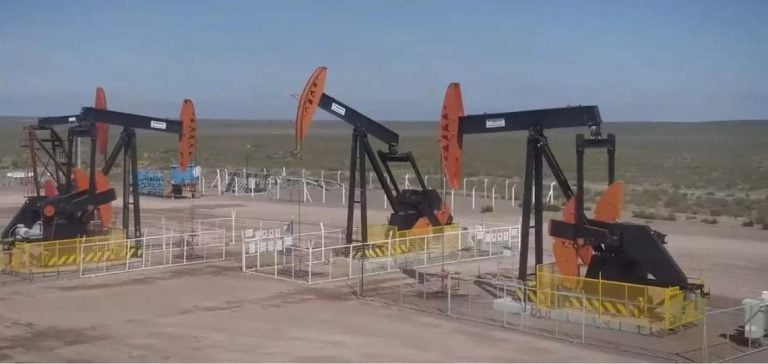Marcelo Mindlin, President of Pampa Energía, announces a significant new step in the development of the energy sector by investing $1.2 billion in the Vaca Muerta project.
This initiative aims to increase oil production to 50,000 barrels per day within three years.
The investment focuses primarily on the acquisition of the remaining 50% of the Rincón de Aranda zone, previously purchased from TotalEnergies.
This project is part of Pampa Energía’s wider strategy to strengthen its position in the Argentine energy market.
Investment in renewable energies
Alongside this announcement, Mindlin also presented the Pampa Energía VI wind farm, which represents an initial investment of $260 million, out of an estimated total cost of $500 million.
The wind farm, comprising 31 Vestas wind turbines with a generating capacity of 140 MW, is the company’s sixth wind power project.
It is distinguished by its direct connection to a 500 kV high-voltage grid, marking a technological breakthrough in Argentina’s renewable energy sector.
Mindlin stresses the importance of diversifying energy sources and increasing production capacity to meet growing demand.
He also points to the positive impact of these projects on the local economy, creating jobs and stimulating economic activity.
Pampa Energía’s commitment to renewable energies is part of a global trend towards decarbonization, while meeting the country’s immediate energy needs.
Growth prospects and regulatory challenges
Pampa Energía’s expansion into the oil and wind sectors is accompanied by an analysis of the regulatory challenges that could hamper growth.
Mindlin calls on the national government to open tenders to encourage competition and facilitate private investment.
He points to the recent extension of the Néstor Kirchner pipeline, which should enable average production of 14.5 million cubic meters of gas per day by the second quarter of 2024, as an example of the importance of a solid infrastructure to support energy development.
In addition, Mindlin expresses confidence in the policies of Javier Milei’s government, particularly with regard to reducing public spending and eliminating the fiscal deficit.
These measures are seen as essential to creating an environment conducive to investment in the energy sector.
The company has also secured a 10% stake and a seat on the board of directors of the Vaca Muerta Sur oil pipeline, while considering joining the liquefied natural gas (LNG) project with Petronas.
Impact on the local market and economy
Pampa Energía’s commitment to Vaca Muerta and renewable energies could have a significant impact on the Argentine energy market.
Increased oil and gas production could help reduce the country’s energy dependency and stabilize prices on the domestic market.
In addition, the development of renewable energy projects such as the Pampa Energía VI wind farm could strengthen Argentina’s position as a key player in the regional energy transition.
Mindlin insists that these projects are not limited to economic considerations, but also aim to generate social benefits.
By creating jobs and supporting local communities, Pampa Energía seeks to establish a model of sustainable development that benefits society as a whole.
Conclusion on Argentina’s energy future
The announcement of Pampa Energía’s investment in Vaca Muerta and renewable energies illustrates a positive dynamic in Argentina’s energy sector.
Current and future projects testify to a desire to innovate and diversify energy sources.
As the country moves towards an energy transition, Pampa Energía’s commitment could play a crucial role in achieving decarbonization and sustainability objectives.
Regulatory and economic challenges remain, but the prospects for growth and positive impact on the local economy are promising.






















